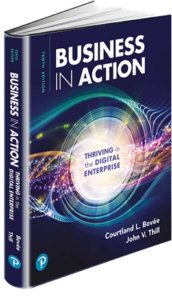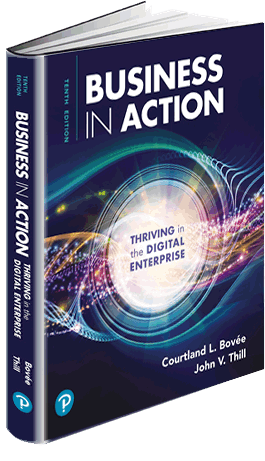
Generational shifts are transforming business education, requiring instructors to adapt teaching methods for effectiveness.
The teaching of Introduction to Business is undergoing significant transformations due to generational changes, from Baby Boomers to Gen Z. Each generation brings distinct learning preferences, values, and expectations, requiring instructors to adapt their teaching methods to remain effective and relevant. Below are 15 examples of how generational shifts are influencing business education, predictions for long-term effects, and strategies for adaptation, supplemented with additional insights and recommendations.
1. From Passive to Active Learning
Shift: Baby Boomers and Gen X were often comfortable with lecture-based, passive learning, whereas Millennials and Gen Z prefer active, hands-on learning experiences.
Long-Term Effect: Business education will increasingly focus on experiential learning, group activities, and real-world problem-solving, potentially incorporating gamification and immersive learning experiences.
Adaptation Strategy: Incorporate more interactive teaching methods, such as business simulations, group projects, and case studies, to engage students in active learning. Utilize flipped classroom approaches where students learn foundational concepts at home and work on collaborative projects in class.
2. Technological Fluency
Shift: Gen Z students are digital natives, whereas older generations were less dependent on technology in the classroom.
Long-Term Effect: Technology will become integral to all aspects of business education, from course delivery to assessment, with a growing emphasis on AI, data analytics, and cybersecurity.
Adaptation Strategy: Use digital tools, such as online collaboration platforms, business software simulations, and multimedia presentations, to enhance learning and cater to students’ technological proficiency. Implement virtual and augmented reality experiences to simulate real-world business environments.
3. Demand for Immediate Feedback
Shift: Gen Z expects immediate feedback and communication, while previous generations were accustomed to waiting for results or grades.
Long-Term Effect: The demand for faster feedback will change how assessments are managed, with more real-time grading and immediate responses from instructors, leveraging AI for instant feedback where possible.
Adaptation Strategy: Use automated grading systems, provide frequent formative assessments, and leverage discussion forums for instant communication and feedback. Explore the use of AI-powered chatbots for 24/7 support.
4. Preference for Social Responsibility
Shift: Millennials and Gen Z prioritize sustainability, ethics, and social responsibility more than previous generations.
Long-Term Effect: Introduction to Business courses will increasingly emphasize corporate social responsibility (CSR), ethical decision-making, and sustainability, including the exploration of B Corps and social enterprises.
Adaptation Strategy: Incorporate CSR and sustainability case studies, highlight purpose-driven businesses, and encourage projects focused on ethical business practices. Invite guest speakers from socially responsible companies to share their experiences.
5. Need for Flexibility in Learning
Shift: Gen Z and Millennials value flexibility in how, when, and where they learn, unlike Boomers and Gen X, who were used to more rigid schedules.
Long-Term Effect: Business courses will likely offer more hybrid or fully online options, with greater flexibility in assignments and deadlines, accommodating different learning styles and needs.
Adaptation Strategy: Implement flexible learning models such as asynchronous content, recorded lectures, and self-paced modules to meet students' desire for personalized learning experiences. Utilize learning management systems (LMS) to track progress and provide resources.
6. Focus on Entrepreneurial Mindset
Shift: Millennials and Gen Z are more entrepreneurial compared to earlier generations, driven by the gig economy and startup culture.
Long-Term Effect: Introduction to Business courses will need to place more emphasis on entrepreneurship, innovation, and startup creation, including the teaching of design thinking and lean startup methodologies.
Adaptation Strategy: Offer entrepreneurship modules, startup competitions, and workshops on ideation, business planning, and pitching to foster an entrepreneurial mindset. Collaborate with local incubators and accelerators for real-world experiences.
7. Diversity and Inclusion as Priorities
Shift: Younger generations are more aware of the importance of diversity and inclusion in business, while earlier generations often did not prioritize these issues.
Long-Term Effect: Business education will need to incorporate a stronger focus on diversity, equity, and inclusion (DEI), reflecting the modern workplace's priorities, including unconscious bias training and inclusive leadership practices.
Adaptation Strategy: Integrate DEI principles into the curriculum through diverse case studies, discussions on cultural intelligence, and encouraging diverse group collaborations. Ensure course materials and guest speakers represent a variety of backgrounds and perspectives.
8. Global Perspective on Business
Shift: Millennials and Gen Z view business through a global lens, given their exposure to global cultures and economies through the internet and social media.
Long-Term Effect: Courses will increasingly focus on global business, international markets, and cross-cultural management, including the exploration of emerging markets and global sustainability challenges.
Adaptation Strategy: Include international business case studies, encourage collaboration with international students or professionals, and use virtual exchange programs to enhance global learning. Offer study abroad programs or international internships for immersive experiences.
9. Desire for Work-Life Balance
Shift: Gen Z and Millennials value work-life balance more than previous generations, affecting how they view business practices and leadership.
Long-Term Effect: Students will expect business courses to teach them how to succeed without sacrificing personal well-being, pushing a shift toward human-centered management and wellness-focused leadership.
Adaptation Strategy: Highlight companies that emphasize work-life balance, teach time management and stress management techniques, and offer lessons on leading with empathy and emotional intelligence. Incorporate mindfulness and wellness practices into the curriculum.
10. Skepticism Toward Traditional Corporate Models
Shift: Younger generations are less attracted to traditional corporate structures, preferring flexible work environments, startups, or freelance careers.
Long-Term Effect: Introduction to Business courses will shift from focusing on large corporate structures to include more on freelancing, the gig economy, and non-traditional business models, such as cooperatives and social enterprises.

Introduction to Business courses are shifting focus to freelancing, the gig economy, and non-traditional models.
Adaptation Strategy: Introduce content on freelancing, contract work, and alternative business structures. Explore the rise of remote work and its implications for business operations and leadership.
11. Expectations for Personalization
Shift: Gen Z expects personalized learning experiences, similar to the customization they experience in technology (e.g., Netflix, social media feeds).
Long-Term Effect: One-size-fits-all education will fade, replaced by more personalized learning paths tailored to individual student interests and strengths (such as Pearson’s MyLab for Introduction to Business), leveraging AI for customized content delivery.
Adaptation Strategy: Use adaptive learning technologies that adjust content difficulty based on student performance and interests, and offer customized projects that align with individual career goals. Implement AI-driven mentorship programs for tailored guidance.
12. Need for Purpose-Driven Learning
Shift: Millennials and Gen Z want to understand the "why" behind what they’re learning, connecting classroom lessons to real-world impact and personal purpose.
Long-Term Effect: Courses will need to be structured around purpose-driven education, showing how business skills can be used to solve societal and environmental challenges, aligning with the UN's Sustainable Development Goals.
Adaptation Strategy: Align course objectives with real-world challenges, such as solving sustainability issues, reducing inequality, or promoting innovation for social good. Encourage students to develop personal mission statements and connect them to business practices.
13. Influence of Social Media and Peer Validation
Shift: Gen Z relies heavily on social media for information, peer validation, and learning.
Long-Term Effect: Social media and peer collaboration will increasingly become part of formal education, where networking and information-sharing platforms are integrated into the learning process, including the use of professional networking sites like LinkedIn.
Adaptation Strategy: Leverage social media for collaborative projects, use online platforms like LinkedIn Learning for professional development, and create peer feedback systems to enhance learning. Teach digital literacy and online professionalism to prepare students for the digital workplace.
14. Reluctance to Commit to Traditional Career Paths
Shift: Millennials and Gen Z often resist committing to long-term career paths, preferring flexibility and multiple career options over time.
Long-Term Effect: Introduction to Business courses will need to teach students how to navigate careers that are more fluid, with an emphasis on transferable skills, adaptability, and lifelong learning, preparing them for the future of work.
Adaptation Strategy: Focus on developing skills like adaptability, continuous learning, and networking that will serve students in multiple career paths, rather than promoting rigid career planning. Encourage students to explore various career paths through internships and job shadowing.
15. Ethical Consumption and Conscious Capitalism
Shift: Younger generations prefer companies that reflect their ethical values, such as sustainability, fair trade, and transparent business practices.
Long-Term Effect: Business education will increasingly focus on teaching conscious capitalism, ethical leadership, and the importance of aligning business practices with consumer values, exploring the intersection of profit and purpose.
Adaptation Strategy: Teach students about the intersection of profit and ethics, using case studies of companies that succeed by prioritizing ethical consumption and transparency. Invite ethical business leaders to share their experiences and insights.
Long-Term Effects of Generational Changes
These shifts point to a future where business education is more flexible, tech-savvy, purpose-driven, and globally conscious. Courses will likely move away from static, traditional content toward more adaptive and practical learning environments, emphasizing ethical leadership, technology integration, and diverse business models. The future of business education will be shaped by the need for sustainability, social responsibility, and innovation, preparing students to tackle the complex challenges of the 21st century. To remain relevant, business education must prioritize experiential learning, entrepreneurship, and leadership development, while fostering a culture of innovation, creativity, and continuous learning.
Adaptation Strategies
Adopt Technology-Enhanced Learning: Use online tools, AI, and multimedia content to engage digital-native students. Leverage virtual and augmented reality to create immersive learning experiences that simulate real-world business environments.
Emphasize Purpose-Driven Business: Teach students how businesses can positively impact society and the environment, aligning with their values and the UN's Sustainable Development Goals. Encourage students to develop personal mission statements and connect them to business practices.
Offer Flexible Learning Paths: Allow students to choose different tracks or focus areas that align with their career interests, making education more relevant and personalized. Implement flexible learning models, such as asynchronous content, recorded lectures, and self-paced modules.
Integrate Global Perspectives: Use international case studies and collaborative projects to give students a global view of business. Encourage study abroad programs, international internships, and virtual exchange programs to enhance global learning.
Focus on Transferable Skills: Prioritize teaching adaptability, emotional intelligence, and critical thinking over memorization of business theories. Develop students' skills in creativity, innovation, and problem-solving to prepare them for the future of work.
Foster a Culture of Innovation: Encourage students to think creatively and develop innovative solutions to real-world problems. Provide resources and support for entrepreneurship, such as incubators, accelerators, and mentorship programs.
Emphasize Leadership Development: Teach students the importance of leadership, ethics, and social responsibility in business. Develop their leadership skills through experiential learning, case studies, and mentorship programs.
Prioritize Diversity, Equity, and Inclusion: Integrate DEI principles into the curriculum, ensuring that course materials and guest speakers represent a variety of backgrounds and perspectives. Foster an inclusive learning environment that values diversity and promotes equity.
Encourage Lifelong Learning: Teach students the importance of continuous learning and professional development in the rapidly changing business landscape. Provide resources and support for ongoing education and skill-building.
Foster Collaboration and Community: Encourage students to work collaboratively on projects and case studies, developing their teamwork and communication skills. Foster a sense of community among students, faculty, and alumni to promote networking and lifelong connections.
Key Takeaways
The future of business education will be shaped by the needs and preferences of younger generations. By understanding and adapting to these generational shifts, business educators can create learning environments that are more engaging, effective, and relevant to the challenges of the 21st century. By prioritizing experiential learning, entrepreneurship, leadership development, and social responsibility, business education can prepare students to succeed in a rapidly changing world and make a positive impact on society.
 Why Business in Action is the Perfect Fit for Teaching the Next Generation of Business Leaders
Why Business in Action is the Perfect Fit for Teaching the Next Generation of Business Leaders
Business in Action is the ideal textbook for instructors who want to address the evolving needs of students across generational divides. This text is uniquely positioned to meet the expectations of both Millennial and Gen Z learners by prioritizing hands-on, active learning, which aligns with the generational shift away from passive, lecture-based instruction. With its rich collection of interactive case studies, business simulations, and group projects, Business in Action supports experiential learning that engages students in real-world problem-solving.
The textbook's emphasis on technological fluency makes it ideal for Gen Z, who are digital natives. Business in Action integrates cutting-edge tools such as online collaboration platforms, business software simulations, and multimedia presentations. These features cater to students' technological proficiency and ensure that they are well-prepared for the digital demands of modern business environments.
The text also incorporates essential topics such as corporate social responsibility (CSR), ethical decision-making, and sustainability, which resonate strongly with Millennials and Gen Z's focus on purpose-driven learning and social responsibility. By including purpose-driven business case studies and discussions on ethical practices, Business in Action encourages students to connect their personal values with business principles.
Finally, Business in Action promotes flexible learning pathways, offering instructors the tools needed to customize content and provide real-time feedback. This aligns with students' desire for immediate feedback and flexible learning environments. Instructors adopting Business in Action will find it a versatile, forward-thinking resource designed to meet the expectations of today's diverse student population.
 Business in Action, 10th Edition
Business in Action, 10th Edition